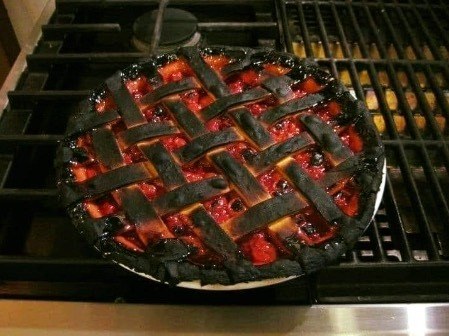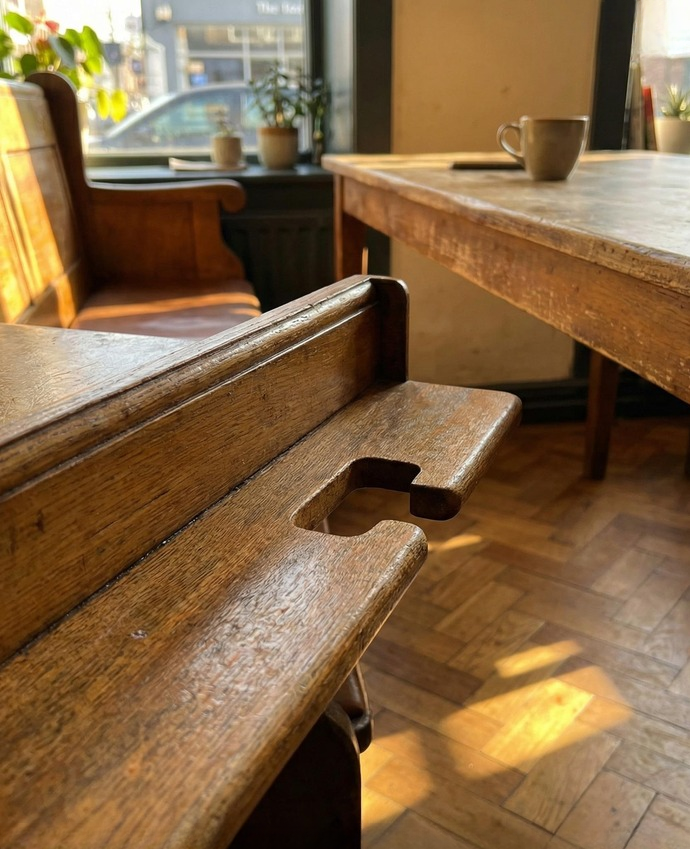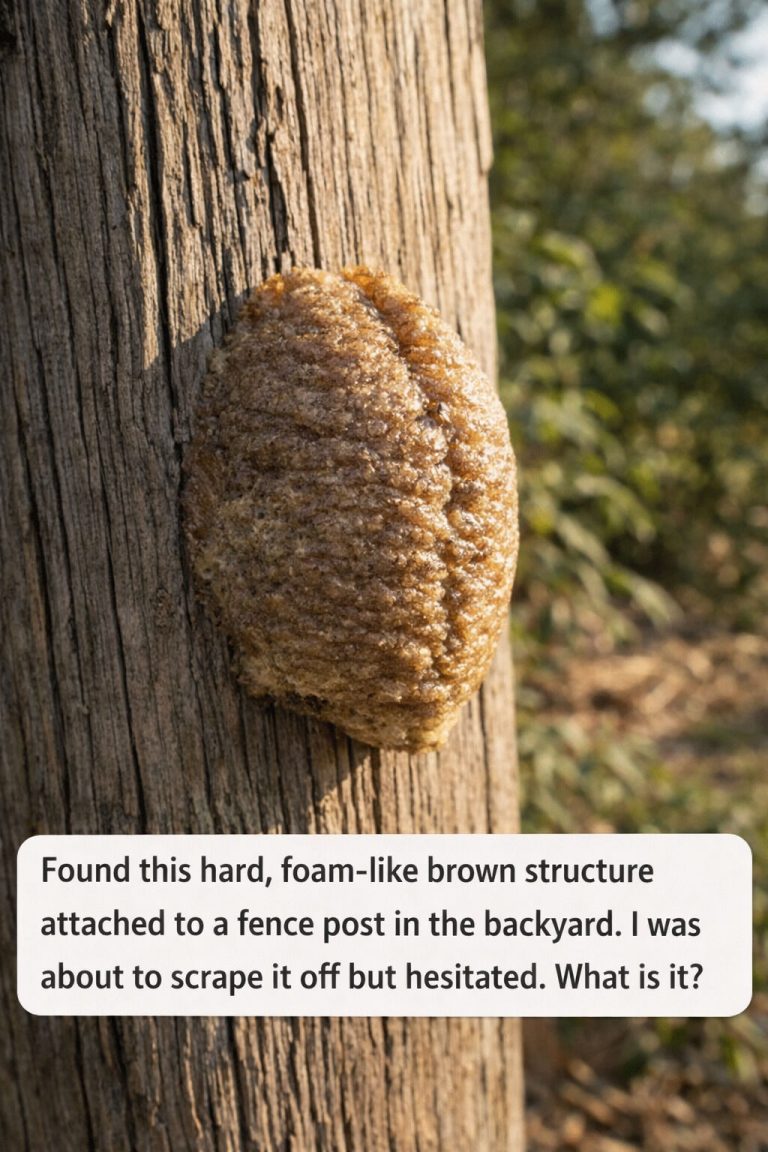
When I was a child, my grandparents’ kitchen always smelled like warmth.
Not just because of the pies and casseroles my grandma baked, but because their home had a kind of love that wrapped around you like a blanket.
They had been married for over fifty years — long enough to finish each other’s sentences, argue about the thermostat, and still hold hands at the dinner table. I thought their marriage was perfect. But one evening, a simple burnt pie showed me what real love actually looks like.
The Night of the Burnt Pie
It was a chilly autumn evening. I remember sitting at the kitchen table, doing my homework, when the smell of smoke filled the air. Grandma rushed to open the oven, waving her apron in front of her face.
“Oh, dear,” she muttered, pulling out what used to be a cherry pie. The crust was black as coal. The edges crumbled like charcoal, and even the fruit inside looked dark and sticky.
She sighed, her shoulders drooping. “Oh, Harold, I ruined it. I completely lost track of time.”
Grandpa, who was reading the newspaper, looked up calmly and said, “That’s alright, dear. A little extra flavor never hurt anyone.”
He set his paper aside, walked to the table, and started slicing the burnt pie as if it were the most beautiful dessert he’d ever seen.
The Silence That Spoke Volumes
I sat there, expecting him to tease her, or at least make a joke. But he didn’t.
He ate the pie — every bite of that blackened crust — without a single complaint.
Grandma smiled weakly, embarrassed. “It’s terrible, isn’t it?” she said softly.
He shook his head. “I like your pie.”
She laughed, though I could tell she didn’t believe him. Still, something about his tone — steady, gentle, and full of love — seemed to lift the heaviness in the room.
I remember watching him eat quietly, savoring each burnt bite as if it were the best thing he’d ever tasted.
The Lesson That Changed Everything
Later that night, when Grandma went to bed, I asked him, “Grandpa, did you really like that pie?”
He chuckled, leaning back in his chair. “Not one bit,” he said with a grin. “It tasted like charcoal.”
I frowned, confused. “Then why did you say you did?”
He folded his hands and looked at me with kind eyes. “Because your grandma had a hard day. The burnt pie won’t hurt me — but my words could’ve hurt her.”
He paused for a moment before adding, “We all burn pies sometimes. We all make mistakes. What matters is how we treat each other when that happens.”
I didn’t understand the full weight of his words then. But I do now.
Love Is in the Small Choices
As I grew older, I realized that love isn’t built on grand gestures or perfect moments. It’s built on grace.
Love is choosing patience when frustration would be easier.
It’s staying kind when you could be critical.
It’s realizing that sometimes, saying “It’s okay” means more than saying “You’re wrong.”
That night, Grandpa taught me something priceless: real love doesn’t just survive imperfection — it embraces it.
He could have complained, scolded, or even joked about the burnt pie. But instead, he protected Grandma’s dignity. In that small act of kindness, he showed what decades of love had taught him — that tenderness matters more than being right.
Years Later…
When Grandpa passed away, I found myself back in that same kitchen, helping Grandma bake.
The air smelled of butter, sugar, and cinnamon — but something was missing.
As she rolled out the dough, her hands trembled slightly. She smiled at me and said, “You know, your grandpa never once told me I ruined dinner. Even when I really did.”
I smiled. “He said he liked your pie.”
Her eyes glistened. “He always did. Even when it was burnt.”
That’s when I realized — love isn’t measured by how perfect things turn out, but by how we treat each other when they don’t.
The World Could Use More ‘Burnt Pie’ Love
Today, we live in a world where people are quick to criticize and slow to forgive.
We scroll, judge, comment, and correct — but forget that every person is fighting unseen battles.
If only we could remember what Grandpa taught me that night:
Sometimes, the kindest thing we can do is eat the burnt pie and smile.
It’s not about pretending something’s perfect when it’s not. It’s about valuing people more than perfection.
Because in the end, no one remembers the flavor of a meal — they remember how they felt at the table.
A Recipe for Grace
If I could write a recipe for what my grandparents shared, it wouldn’t include flour or sugar. It would look something like this:
- 1 cup of patience
- 2 cups of understanding
- A pinch of humility
- A spoonful of forgiveness
- And a whole lot of laughter, even when things go wrong
Mix them together, serve warm, and share daily.
The Moral of the Story
Now, every time I burn dinner — which happens more often than I’d like to admit — I remember that night in my grandparents’ kitchen.
Instead of snapping at myself or apologizing a hundred times, I take a deep breath and smile. Because love, I’ve learned, isn’t about the perfect pie. It’s about the person willing to take a bite, smile, and say, “I like your pie,” even when it’s burnt black as coal.
That kind of love — the quiet, forgiving, unconditional kind — is what keeps marriages, friendships, and families together.
And maybe, just maybe, the secret to happiness is learning to eat the burnt pie once in a while.



